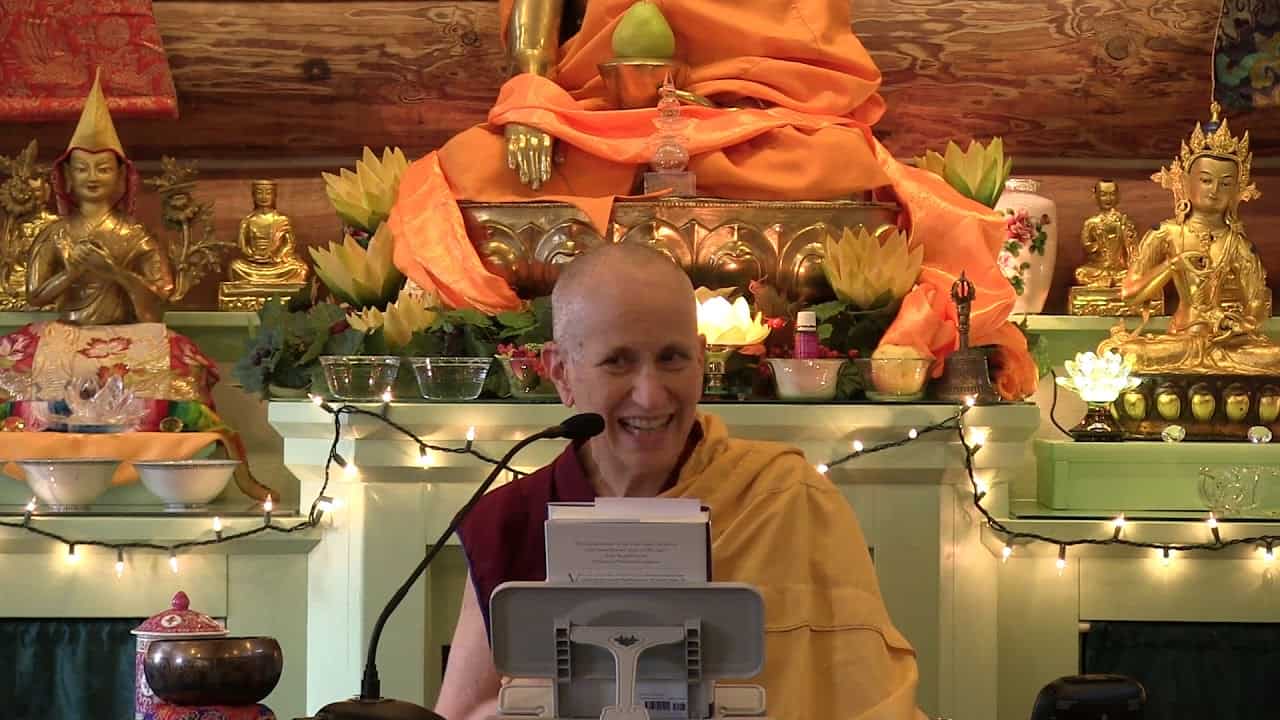The threefold analysis
08 Foundation of Buddhist Practice
Part of a series of teachings given during a retreat based on the book The Foundation of Buddhist Practice given at Sravasti Abbey.
- Working with doubt
- Reliable cognizers based on authoritative testimony
- Examples of determining authoritative testimony
- Determining who to trust
- Applying the threefold analysis
- Reflections on scriptural inference
The Foundation of Buddhist Practice 08: The threefold analysis (download)
Contemplation points
- What are the different kinds of doubt? Which one is beneficial to progress on the path? What doubts do you have (or have you had) with regards to the teachings? Why is it important to set doubts “on the back-burner” for a while rather than reject them outright or accept them without investigation?
- Instead of relying solely on authoritative testimony, why is it important to use inference and direct perceivers as much as possible when learning the Dharma?
- Who do you trust as an authority and in what areas do you take them as authoritative? To what extent is that person fully reliable in terms of knowledge of that topic?
- Those of us who are not scientists know the existence of atoms, the healthy range for human blood pressure, and so forth through accepting the word of scientists. Do we investigate their qualifications as authorities on the subject or do we accept their word without investigation?
- When politicians make various statements, to what extent do we check the reliability of their information and the reliability of their words before believing their statements?
- In what other areas of life do you rely on the testimony of others to know something? Do you check the credibility of the person first or do you tend to believe something simply because someone said it or do you read it somewhere?
- How do we gain confidence in the teachings when we first start learning the Dharma?
- How do we go about differentiating between what is Dharma and what is culture?
Venerable Thubten Chodron
Venerable Chodron emphasizes the practical application of Buddha’s teachings in our daily lives and is especially skilled at explaining them in ways easily understood and practiced by Westerners. She is well known for her warm, humorous, and lucid teachings. She was ordained as a Buddhist nun in 1977 by Kyabje Ling Rinpoche in Dharamsala, India, and in 1986 she received bhikshuni (full) ordination in Taiwan. Read her full bio.


